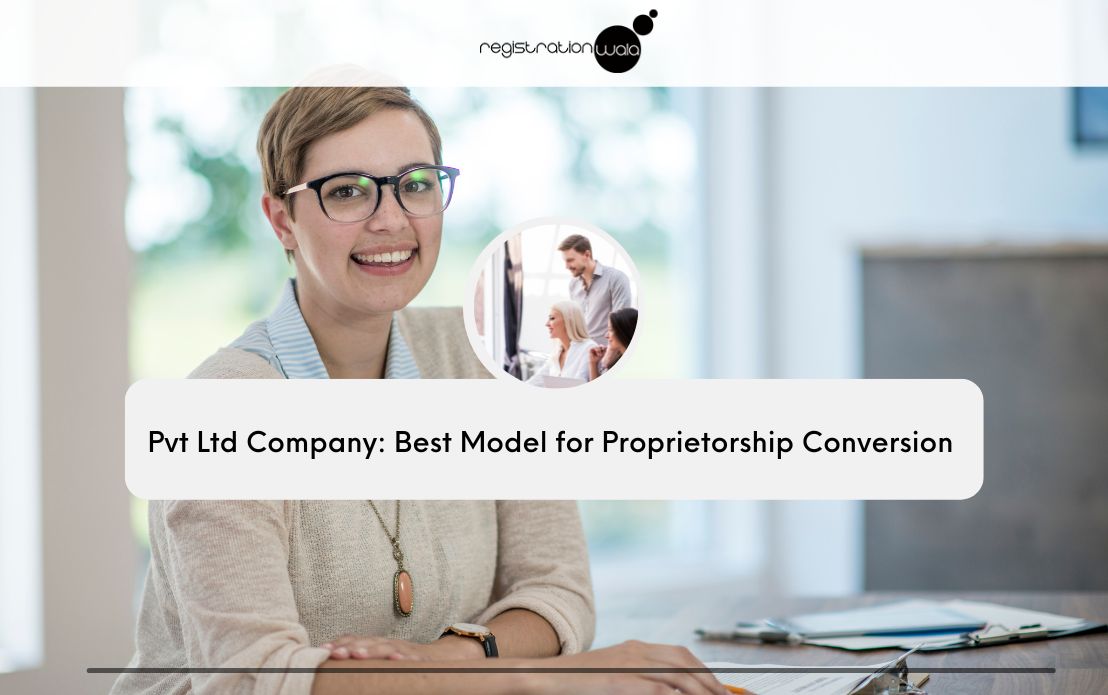As a business or simply a business idea that is in line to become a living reality, the choice you make for the type of company you will register your business as will largely shape its future. So, future company giants must choose wisely for the business model they want to opt for. Lucky for us, in India, there are many business models in which you can register your business, such as a Private Limited Company, Limited Liability Partnership, Sole Proprietorship, and Public Company. But as far as a single-owner venture is concerned, a Sole Proprietorship must convert into a Pvt Ltd Company with time.
Also Read: conversion of proprietorship into company
Why must a Sole Proprietorship convert to a Pvt Ltd Company?
The inception of most business start as a Proprietorship. A person has a brilliant idea he wants to envisage in a business entity. And he is responsible for managing and controlling every aspect of the business. But sooner, he realizes the shortcoming of this adopted model. As the business grows, it becomes increasingly difficult and even dangerous to serve the purpose of a larger enterprise. That is where the proprietor decides to adopt a more conducive business model. And for him, the best bet for a Proprietorship is a Private Limited Company.
But why choose the Private Company of all models:
To under why converting a sole proprietorship into a Private Limited company is the best option for the proprietor, we are enlisting the clear benefits of the private company compared to a Sole Proprietorship.
Reasons for Pvt Company Conversion
A Pvt Ltd Company caters to a Larger Corporate Enterprise
A private limited company is an organization held privately. This means the company’s shares are not tradable to the general population. So, to start a private limited company, a minimum of one director is a natural person. Also, the Private Company must maintain its shareholders between 7 and 50. A Sole proprietorship is a simple structure incorporating a medium to large enterprise. This hinders the business operations immensely, leading to its ultimate failure.
Also Read: conversion of private company into public company
A private limited company limits the risk to the personal assets of a director or a shareholder to the extent of their shareholding. This is an advantage because the bank cannot acquire the personal assets of a director or shareholder to clear company debts. In a sole proprietorship, the owner has unlimited liability. This means the proprietor is liable to pay for the company’s losses from its assets.
A sole proprietor is the single bearer of profit and loss of the business. So, any profit a business earns or any debts incurred is only borne by the sole proprietor. Also, his responsibilities aren’t transferable to anyone else.
A Pvt Ltd Company is a Separate Legal Entity from its Directors
A private limited company is a corporate body. It is a separate legal entity. This means that the company directors can sue, be sued, or dispose of company property. They are, in no capacity, a representation of the private company. Both of them are separate legal entities. But, in a sole proprietorship, the trader is the one with the business, so any legal proceeding against the company is like a proceeding against the owner.
Also Read: Why must you opt for the One Person Company Registration?
A Pvt Company is a stable structure: It can exist continuously
Perpetual succession is another crucial reason for conversion. A Private Limited Company does not cease to exist after the directors’ departure. In contrast, there is no provision for perpetual succession in a sole proprietorship. Hence, no one can take over the private company in the event of the owner’s death, bankruptcy or insolvency.
